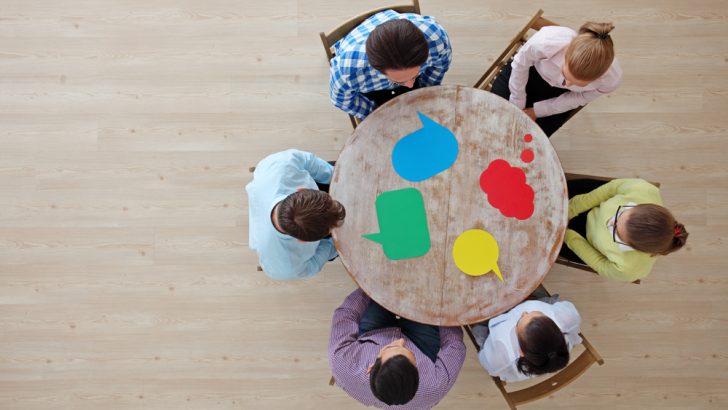Cancer diagnosis rates are rising, but so too are survival rates, writes Mags Gargan
Every 15 minutes someone in Ireland hears the words ‘You have cancer’. It is a disease that has touched every family in every community in Ireland.
The rates of cancer diagnosis are rising but so too are survival rates. This year an estimated 40,000 people across the country will be diagnosed with cancer. At the same time there are more than 170,000 people living with and beyond cancer.
Cancer Week Ireland takes place next week, Monday, September 25 to Sunday, October 1, with events being hosted across the country to raise awareness and open up a national conversation about cancer in communities and organisations.
Cancer Week Ireland is the brain child of the Irish Cancer Society and Trinity College Dublin. It first took place in 2014 and brought together national and international experts to discuss improvements in cancer treatments, as well as tackling the physical and emotional consequences that a cancer diagnosis can bring.
In 2015 the Cancer Week concept continued to grow and led to another successful week-long programme of events on the theme of cancer research and clinical trials.
Now in its fourth year, Cancer Week is rolling out nationally to become Cancer Week Ireland. This year it wants to start a national conversation about cancer and how more people are surviving as more advances are made in detection and treatment. There are events, large and small, planned across the country. (cancerweek.ie)
“Cancer Week is for anyone who has an interest in cancer – whether they be academics, physicians, patients or patient groups – to just have a conversation around cancer,” says Donal Buggy, Head of Services and Advocacy at the Irish Cancer Society.
Lifestyle
“It’s to create an awareness that the story of cancer is complex and it is changing. It’s to make people aware that four out of every 10 cancers can be prevented by changes in lifestyle.
“People tend to think there is an inevitability about cancer, but there is actually a lot that you can do to avoid it. Also more and more people are surviving cancer and they have medical and support needs that are outside of the traditional cancer treatments of radiotherapy and chemotherapy, around psychological support to help with the impact of the cancer personally or indeed social and financial support. How to get back to work for example, that’s something employers need to be aware of.
“The financial impact of cancer is often not considered. You may have to quit or cut down on work which means you have a reduced income at a time when costs in terms of medicine, and things like electricity, because you often feel cold during treatment, are at a height. There are lots of costs associated with a cancer diagnosis. So there are lots of different conversations around lots of different aspects of cancer,” he says.
Cancer is a complex issue. It is an umbrella term that covers a group of more than 100 diseases involving abnormal cell growth, including breast cancer, skin cancer, lung cancer, colon cancer, blood cancer, prostate cancer and lymphoma. So it is easy to see why cancer is so prevalent in Ireland, but why are the rates rising?
“There isn’t a single cancer,” Donal says. “There are a myriad of different diseases in cancer, but when you strip out the cancers that occur in early life and early adulthood, a lot of cancers are cancers of ageing. So because we are living longer and because none of us have figured out how not to be mortal, we all have to die of something.
“As your cells divide they regenerate. The more times they divide and regenerate the more likelihood there is of something going wrong. So as we get older, we get more cancers and because we now live on average into our 80s rather than into our 50s as we did years ago, there would be far more cancers.”
However, Donal says that lifestyle has an influence on contracting the disease. “Smoking is very strongly correlated with cancer, as is alcohol and physical inactivity. Obesity is also a challenge. So more and more cancers are now related to our behaviour and lifestyle. While we may be getting better in terms of smoking rates and cancer treatment, other lifestyle factors are causing more cancers,” he says.
The good news is that survival rates are also improving, thanks to advances in knowledge of how cancer works and how to treat it.
“If we look back at the 1980s, about four out of every 10 people would have survived their cancer, living five years beyond treatment. That figure is now heading between six and seven out of every 10 who are diagnosed with cancer, will live for more than five years after their treatment,” Donal says.
“That is down to a number of things, such as the fact that we have centralised our cancer services. Now if you are diagnosed with cancer you are more likely to be seen by a cancer specialist who deals with your type of cancer on a daily basis, so more specialised skills can give you a better treatment. Also technology has advanced – radiotherapy and chemotherapy is significantly better. We also know more about cancer treatment – what works and what doesn’t work. Our understanding of cancer has improved.”
Prevention
The Irish Cancer Society offers a range of support for people affected by cancer, from prevention to diagnosis through treatment to survival or end of life care. It offers research, information, support, community outreach and advocacy to inform policies and resources that affect the lives and wellbeing of people who have cancer, survivors, families and caregivers.
“We have a number of flagships services,” says Donal, “such as our night nurse service, which help people who are at end of life to die comfortably. That is greatly appreciated by families and by the people themselves who are helped at the end of their life, because the vast majority of people want to die at home surrounded by their loved ones and this service helps them to do that.”
Daffodil Centres provide cancer information, support and advice in local hospitals and a nurse line staffed by cancer nurses offers support and advice.
“We also do a lot of work around just being available to people affected by cancer,” Donal says.
At the heart of everything that the charity does, are the volunteers. “We have a volunteer driving programme, with more than 1,000 volunteers right around the country who bring cancer patients to and from their hospital appointments, taking the pressure off the family,” Donal says. “We also have a group of people who work with us as volunteers who have had cancer themselves and they talk to people who have just been diagnosed. They talk about that what to expect.”
After five years of working with people with cancer, Donal has seen people at the worst time in their life, and what has touched him is their inner strength and the kindness of those around them.
“I have seen people who are absolutely astounding in terms of how they cope with the challenges of cancer and how they support other people too. People are so generous with their time and willingness to support people who have cancer,” he says. “The Irish Cancer Society couldn’t do the work it does without the volunteers, who are so generous with their time and are so patient, kind and supportive to people who are going through a very difficult experience.”
Cancer Week Ireland takes place from Monday, September 25 to Sunday, October 1. See cancerweek.ie


 Mags Gargan
Mags Gargan